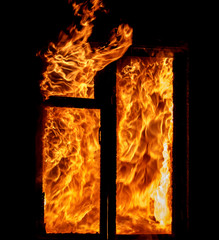The penalties for arson can be severe, so it is imperative that you are adequately prepared and represented during your case. Reach out to an experienced Dallas County criminal lawyer today for more information and legal advice.
What is Arson?
Arson is the criminal offense of purposely or recklessly starting a fire or setting off an explosive with the intention of committing a crime or destroying a person’s property. Iowa Legislature Section 712.1 defines the crime of arson as follows.
- “Causing a fire or explosion, or placing any burning or combustible material, or any incendiary or explosive device or material, in or near any property with the intent to destroy or damage such property, or with the knowledge that such property will probably be destroyed or damaged… whether or not any such property is actually destroyed or damaged.”
- “Causing a fire or explosion that damages or destroys property while manufacturing or attempting to manufacture a controlled substance in violation of section 124.401…”
The law also outlines the offense of reckless use of fire, explosives, or destructive devices. While not technically arson, it is a related offense that occurs when a person uses fire, explosives, or destructive devices to recklessly endanger the property or safety of another person.
What Are the Penalties for Arson in IA?
The penalties associated with an arson conviction are severe but vary depending on the degree of offense you are charged with. There are three standard types of arson: first, second, and third degree. The definitions and consequences for each are as follows.
First-degree arson:
- When the presence of one or more persons can be reasonably anticipated in or near the property which is the subject of the arson, or the arson results in the death of a firefighter, whether paid or volunteer
- Class B felony
- Up to 25 years in prison
Second-degree arson:
- When the property which is the subject of the arson is a building or a structure, or real property of any kind, or standing crops, or is personal property the value of which exceeds seven hundred fifty dollars
- Class C felony
- Up to 10 years in prison
- Fines of $1,370 to $13,660
Third-degree arson:
- Arson which is not arson in the first or second degree
- Aggravated misdemeanor
- Up to 2 years of imprisonment
- Fines of $855 to $8,540
Reckless use of fire, explosives, or destructive devices:
- Serious misdemeanor
- Up to 1 year of imprisonment
- Fines of $430 to $560
The consequences of an arson conviction can also include additional penalties like restitution, probation, community service, and more. It can also have a significant impact on your daily life, including your personal relationships, employment status, ability to obtain a job or housing, and more.
For more information and to secure skilled representation, reach out to an experienced attorney at Iowa Defenders, PLLC today.

